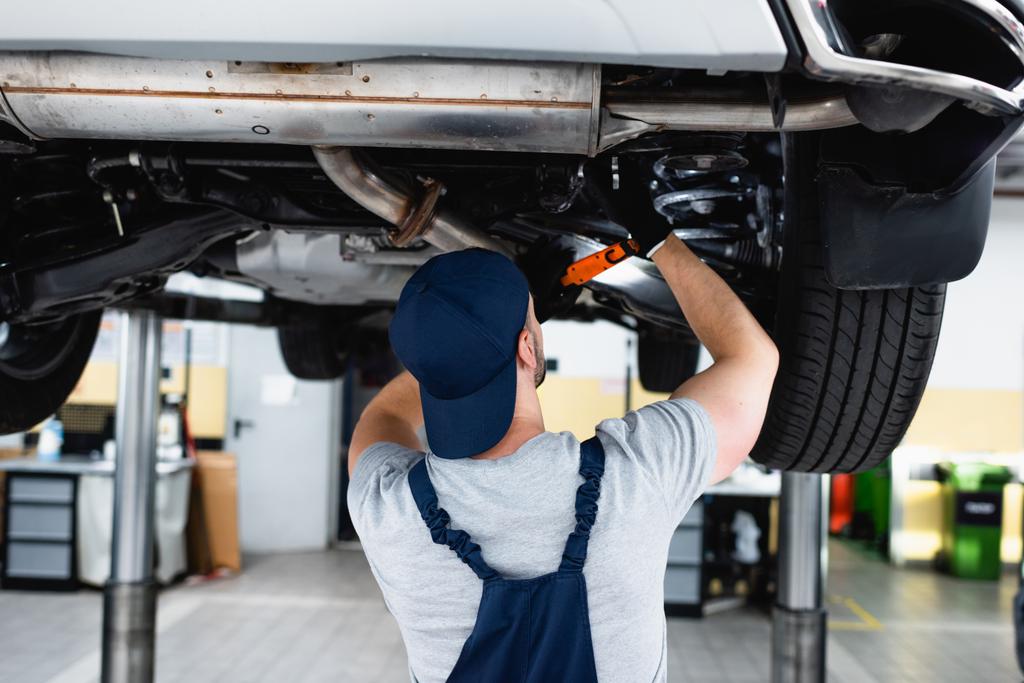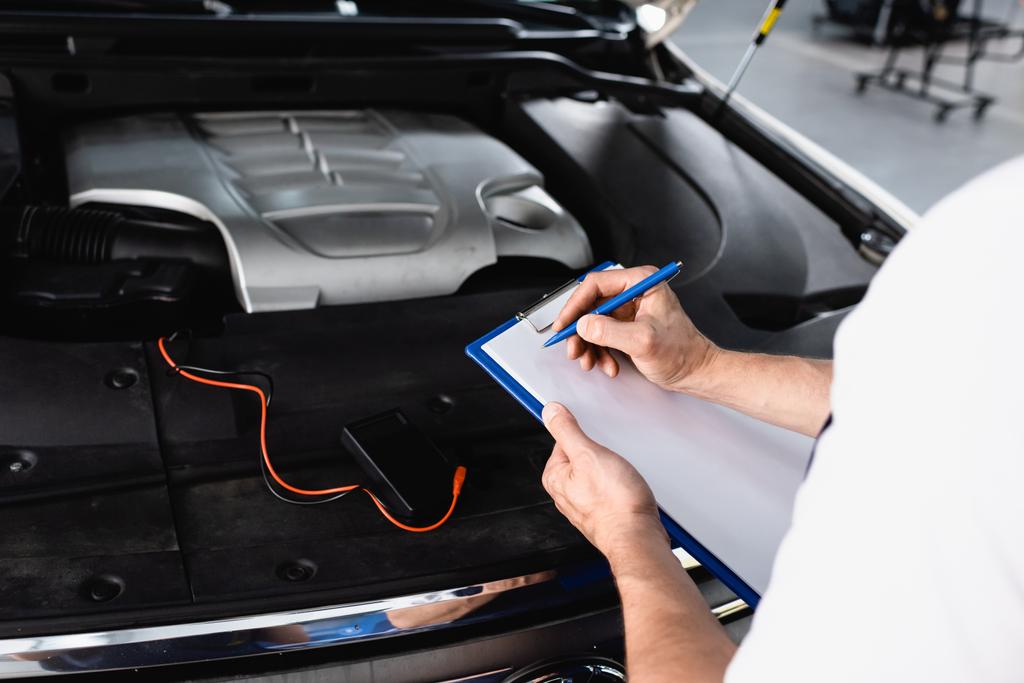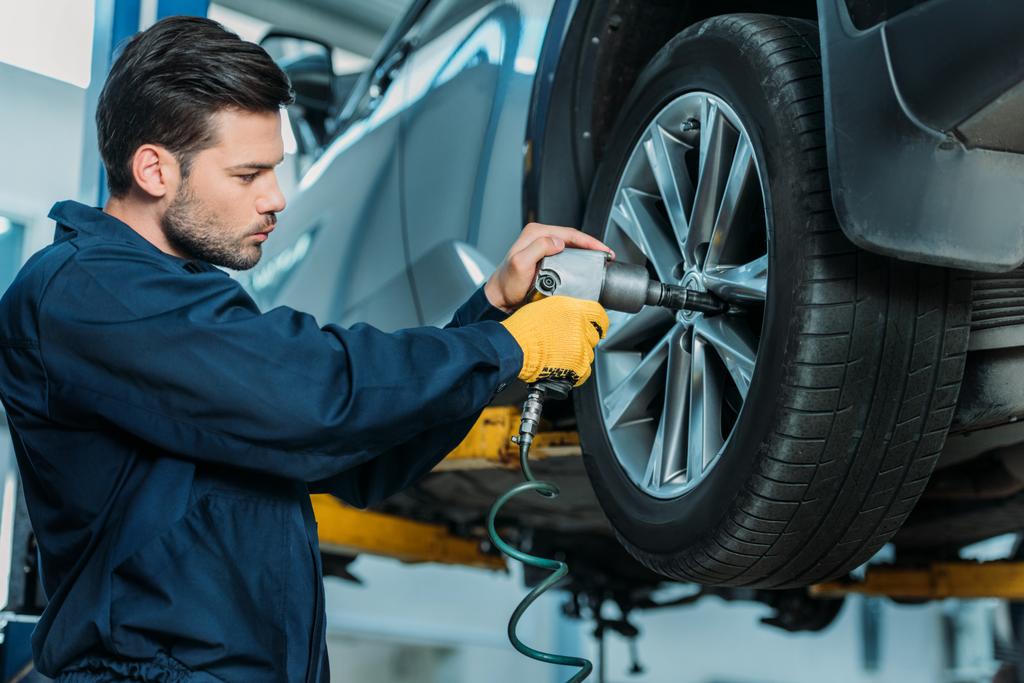Frequent car repairs and maintenance are essential components of owning a car but they frequently go unnoticed. Many see their cars as nothing more than means to get from one place to another. Still, a car is more than a vehicle; it’s a representation of its owner and, for many, a vital component of their existence. Frequent maintenance keeps a car safe, dependable and effective—all qualities that are good for the person behind the wheel.
The Misconception of Unnecessary Expense
There is a widespread misconception that car maintenance is superfluous. This viewpoint typically shifts when a poorly maintained vehicle breaks down frequently, resulting in more expensive repairs and significant inconvenience. Investing in routine maintenance not only saves money but also ensures the longevity and safety of your car.
Why Regular Car Maintenance is Non-Negotiable
1. Enhanced Vehicular Performance
A car with regular maintenance runs more smoothly and dependably. Frequent maintenance can greatly extend the life of your car and guarantees that all of its parts are operating as intended. This translates to fewer mechanical issues and an improved driving experience.
2. Safety
This is possibly the most important part of routine auto maintenance. Improper maintenance of a vehicle poses a risk not only to the driver but also to other road users and passengers. Tire wear, malfunctioning brakes and other common problems can be avoided with routine inspections.
3. Economic Savings
Even though it might seem paradoxical, investing in routine maintenance can end up saving you a lot of money over time. You can save yourself the expensive bills of major repairs by identifying problems early on. A well-maintained car also uses less fuel and holds its value better.
Understanding What Lies Beneath
Many car problems are hidden from view. You may miss a problem until it’s too late if you don’t conduct routine checks. Paintless dent removal in Sydney, for instance, can take care of small dents and dings without the need for pricey and time-consuming traditional bodywork. These crucial areas are where hidden issues may surface.
Engine: The Heart of Your Vehicle
Your car’s engine is its powerplant and maintaining it properly is essential to both the longevity and general performance of the vehicle. Ignoring engine maintenance can result in a number of issues, some of which might not be apparent right away.
- Overheating: Low motor oil or coolant levels can cause overheating. By lubricating the moving components of the engine oil lowers friction and dissipates heat. The radiator is used to release the heat that the coolant absorbs from the engine. Insufficient amounts of either can result in an excessive build-up of heat which could cause engine parts to warp or break.
- Poor Fuel Efficiency: An engine that is well-maintained uses less fuel because it operates more effectively. For example, routine oil changes guarantee that the engine isn’t working harder than it needs to, which over time can save you fuel.
- Reduced Performance: Problems such as blocked air filters or deteriorating spark plugs can cause an engine’s performance to decrease. Your car may feel less responsive or have trouble accelerating.
- Increased Emissions: A poorly maintained engine may emit more harmful emissions which could lead to an emissions test failure and increased pollution.
Brakes: Your First Line of Defense
One of your car’s most important safety components is the brake system. This is the reason why routine brake maintenance is a must.
- Stopping Distance: Your car’s stopping distance can be greatly increased by worn brake discs or pads. Having those extra feet could mean the difference between a safe stop and a collision in an emergency.
- Brake Failure: Complete brake failure is uncommon but it is possible if maintenance is skipped. All of the braking system’s parts can be kept in good operating order with routine inspections.
- Uneven Wear: When brakes wear unevenly, it can occasionally cause the car to pull to one side. This can be unsettling and hazardous, particularly when braking forcefully.
- Noise and Vibration: Brake wear frequently results in noise or vibration of the steering wheel. Given that they signify the brake components approaching end of life, these warning signs should never be disregarded.

Tires: Your Contact with the Road
The condition of your tires, which are the only part of your car that makes contact with the road, can have a big impact on both the performance and safety of your ride.
- Handling: Your car’s handling can be significantly impacted by worn or uneven tires which can make steering more difficult particularly in bad weather.
- Stopping Distance: Just as with brakes, your car’s stopping distance is greatly influenced by the state of its tires. The amount of distance needed to stop completely can be greatly increased by worn tires because they have less grip.
- Risk of Blowouts: Pneumatic punctures and blowouts are more common in worn tires. A blowout at a high speed can be very dangerous and cause the car to lose control.
- Fuel Efficiency: Well-maintained and correctly inflated tires can increase fuel economy. Tires that are underinflated increase rolling resistance which makes your engine work harder to move the car.
Lists to Live By: Regular Maintenance Checks
To ensure your vehicle remains in top condition, here are some regular checks and maintenance tasks to keep in mind:
Monthly Checks
- Oil Level: To prevent engine damage, check and top off as needed
- Tire Pressure: Verify that all of the tires, spare included, are inflated to the recommended level
- Coolant Level: Make sure there is enough coolant in the system to avoid overheating
- Lights: Inspect every light, including the brake headlight and indicator lights
Quarterly Checks
- Brake Fluid: Check the level and cleanliness of the brake fluid.
- Transmission Fluid: Inspect for proper concentrations and indications of contamination.
- Battery: Inspect for corrosion and make sure all connections are clean and tight.
- Wipers: If your wipers are not successfully clearing the windshield, replace them.
Annual Checks
- Brake Pads and Rotors: To guarantee efficient braking, replace any worn-out brake pads and rotors.
- Air Filter: Replace the air filter to increase engine performance and efficiency.
- Tires: Replace them if there are indications of damage or if the tread wear has exceeded the permitted level.
- Alignment: Make sure the car drives straight and lessens tire wear by checking and adjusting.

In Conclusion
Maintenance on vehicles is important to maintain longevity, safety, and efficiency, in addition to preventing breakdowns. Incorporating services like paintless dent removal in Sydney can address minor bodywork issues without extensive costs, while applying paint protection film in Sydney can safeguard your vehicle’s exterior from wear and tear, enhancing its appearance and resale value. Maintaining a regular maintenance schedule will save you money over time and make sure that your car is a safe and dependable source of transportation that represents you well as its owner. Keep in mind that regular maintenance can often be far less expensive than neglect. Seeking expert assistance, such as a car service in Sydney, can guarantee that your car stays in top condition if you’re not sure how to maintain it correctly.






